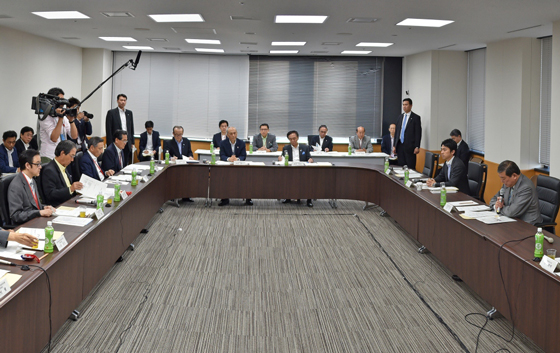If you are not redirected automatically, please click on the URL below.
ページが切り替わらない場合は、https://www.english.metro.tokyo.lg.jp/topをクリックしてください。

Please enable JavaScript to use the website of the Tokyo Metropolitan Government.
Updated on June 15, 2015
Main content starts here.
Fourth National Strategic Special Zone Meeting for the Greater Tokyo Area

On Monday, June 15, Governor Masuzoe attended the fourth National Strategic Special Zone Meeting for the Greater Tokyo Area.
At the meeting, the Tokyo Metropolitan Government submitted nine proposals for projects in the special zones, which were all approved.
Of the nine proposals, in the area of urban renewal and development, three concerned projects that called for exceptions to the City Planning Act. These included the construction of a new Hibiya subway line station and the construction of a bus terminal in the Toranomon 1-chome district. Another three proposals in this area concerned the Road Act, with exceptions to be made for area management designed to bring more vibrancy to the Shinjuku subcenter and other areas by facilitating efforts to utilize roads and other spaces. And three proposals called for exceptions to broaden treatment of foreign patients by foreign-licensed doctors at hospitals in the special zone. Four hospitals are scheduled to start providing such services by the end of this year.
In addition to the nine wards initially designated as special zones, the governor requested expansion of the special zone area to cover all of Tokyo. The governor also suggested the establishment of a special zone for urban agriculture in the ward area and Tama area, as well as deregulation for manufacturing “shochu” distilled spirits in the Tokyo islands as a local specialty.
Speaking to reporters after the meeting, Governor Masuzoe said, “As a whole, we are moving in a positive direction. I believe that the birth of various exceptions will help boost Tokyo.”